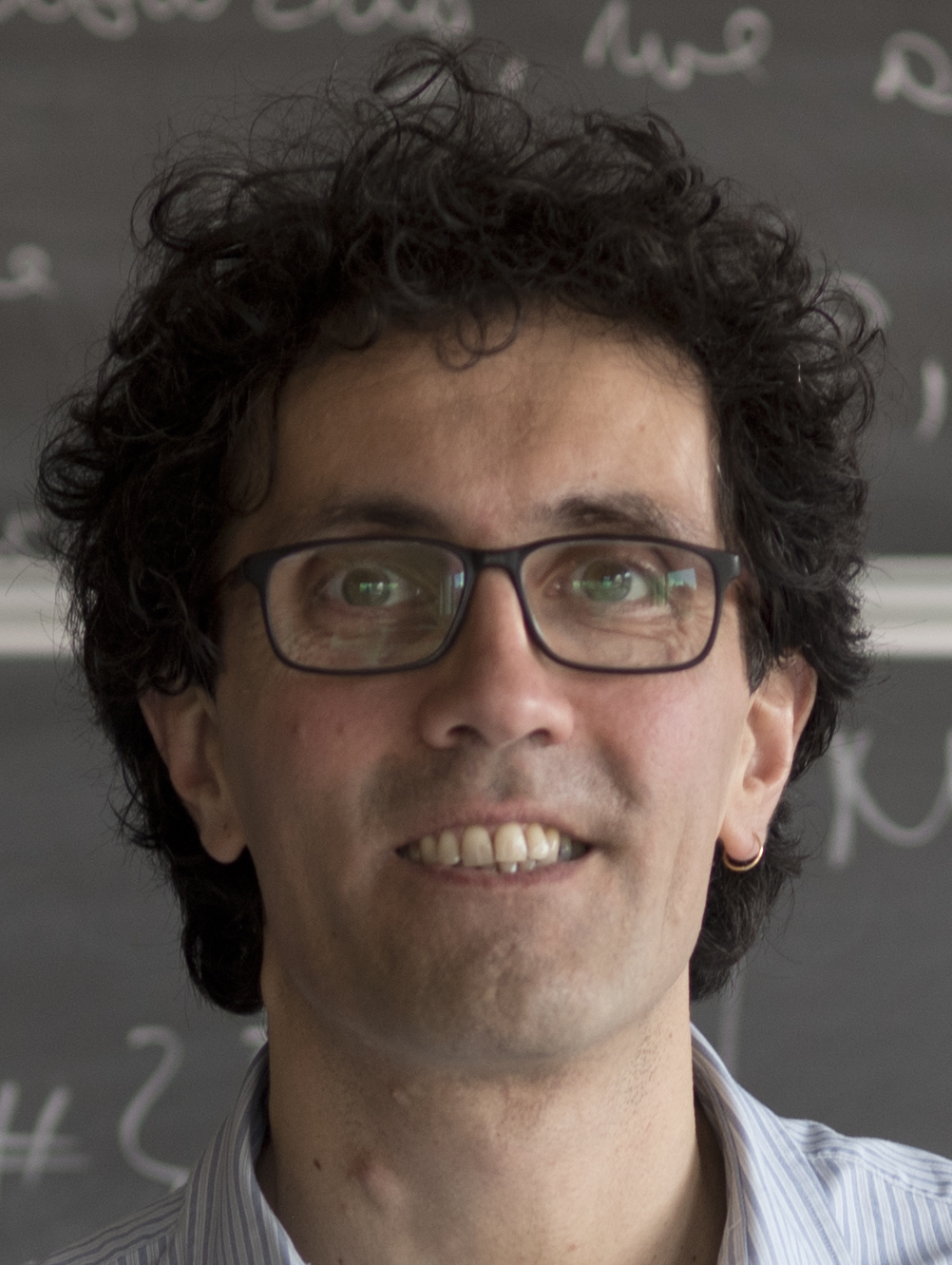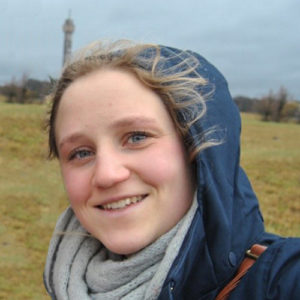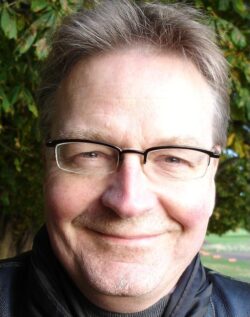SAIS ’23
The 35th Swedish Artificial Intelligence Society (SAIS'23) annual workshop in Karlskrona, Sweden
Welcome to the 35th Swedish Artificial Intelligence Society (SAIS) annual workshop: SAIS 2023. We invite you to submit papers to SAIS 2023, The Swedish AI Society’s annual workshop. It will be hosted in Karlskrona, Sweden, on June 12-13, 2023. The event is hosted by BTH – Blekinge Institute of Technology, and is planned to be an on-campus event in Karlskrona, Sweden.
SAIS was formed in 1982 and the annual workshop has seen a growing number of participants joining from all over Sweden, the Nordic countries and internationally. During the workshop, the scientific program consisting of paper presentations and keynote speakers (more info to come), is intermixed with networking opportunities with both academics and industry partners as part of the event’s social program.
Submissions
We invite four types of contributions to SAIS 2023, from all areas of AI research, from Sweden and the rest of the world:
- 6-10 pages full paper describing original contributions. General descriptions of current ongoing projects are also acceptable. This category will be published in the proceedings of SAIS 2023 unless the authors choose to opt-out of this. Choose track ”SAIS23 – full papers” when submitting your paper.
- 2 pages extended abstracts of papers published by or submitted to other AI venues, e.g. AI journals and AI conferences, within the last 12 months. The two pages should include everything, including references, figures, etc. These will not be included in the proceedings, but can still be presented. Choose track ”SAIS23 – extended abstracts, previously published papers” when submitting your extended abstract.
- 2 pages extended abstract describing the industrial application of AI, demonstrating use cases that can leverage machine learning and AI techniques in a real-world setting. The two pages should include everything, including references, figures, etc. The first author should be from the industry. Choose track ”SAIS23 – extended abstracts, industrial applications” when submitting your extended abstract.
- 2 pages extended abstract describing ongoing Ph.D. projects (the first author has to be a Ph.D. student). The problem statement and research question/s have to be clearly introduced and motivated. The two pages should include everything, including references, figures, etc. Choose track ”SAIS23 – extended abstracts, Ph.D. projects” when submitting your extended abstract.
The program committee will review all the papers and extended abstracts. The accepted contributions will be presented either as oral presentations, practical demonstrations or poster sessions.
All papers will be carefully reviewed by the program committee. Accepted papers will be published in the electronic workshop proceedings (more details will be communicated). Copyright stays with the authors and authors of previously unpublished papers accepted to the SAIS workshop are encouraged to submit these to other workshops or conferences.
All submissions should be in PDF and must be written in English using the Latex template available here
All papers and abstracts should be submitted through EasyChair, https://easychair.org/conferences/?conf=sais23.
Camera ready instructions
We will use EasyChair’s proceedings for handling all camera ready submissions. Authors of all accepted papers should have received an email with instructions. Use your ”EasyChair proceedings author” role and then you can upload an updated version (i.e., the camera ready version) of your paper / extended abstract. The page limit is 10 pages for full papers and 2 pages for extended abstracts. Please, make sure you use the template above when preparing your camera ready version.
The deadline for submitting your camera ready version is May 14, 2023.
Important dates
Submission deadline: 2023-03-31 Updated: 2023-04-05
Notifications of acceptance: 2023-04-23 Updated: 2023-04-26
Camera ready: 2023-05-14
Conference: 2023-06-12 – 13
Keynote speakers
Confirmed keynote speakers
|
Prof. Diego Calvanese, one of the world-leading experts in knowledge representation and semantic technologies from the Free University of Bozen-Bolzano (IT) and Umeå University (SE) where he acts as a Wallenberg Guest Professor. home page |
 |
|
Dr. Judith Bütepage, a machine learning expert and robotics enthusiast with experience in both the academic and industry sector currently working as a research lead at SEED at Electronic Arts (SE). papers |
 |
|
Lars Kai Hansen has MSc and PhD degrees in physics from University of Copenhagen. Since 1990 he has been with the Technical University of Denmark, where he heads the Section for Cognitive Systems. He has published more than 350 contributions on machine learning, signal processing, and applications in AI and cognitive systems. His research has been generously funded by the Danish Research Councils and private foundations, the European Union, and the US National Institutes of Health. He has made seminal contributions to machine learning including the introduction of ensemble methods. His work in functional neuroimaging includes the first brain state decoding work based on PET(1994) and on fMRI(1997). He was elected Catedra de Excelencia at UC3M Madrid, Spain(2011), ELLIS Society Fellow(2020) and received the Novo Nordisk Foundation’s Distinguished Data Scientist Award(2022). home page |
 |
Program and Accepted papers
Conference program
pdf download (minor update 2023-06-12)
Published conference proceedings
Linköping Electronic Conference Proceedings 199
Info for presenters
- Check the program for when your presentation is scheduled.
- Check the email you got at the acceptance for how long your presentation slot is.
- It is possible to connect one’s own device via HDMI (and multiple adapters are available, e.g., USB-C).
- The slides should not be sent to us in advance.
Accepted full papers
HINTS: Human-Centered Intelligent Realities.
Veronica Sundstedt, Veselka Boeva, Hans-Jürgen Zepernick, Prashant Goswami, Abbas Cheddad, Kurt Tutschku, Håkan Grahn, Emiliano Casalicchio, Markus Fiedler, Emilia Mendes, Shahrooz Abghari, Yan Hu, Valeria Garro, Thi My Chinh Chu, Lars Lundberg, and Patrik Arlos
(paper)
Fully Convolutional Networks for Dense Water Flow Intensity Prediction in Swedish Catchment Areas.
Aleksis Pirinen, Olof Mogren, and Mårten Västerdal
(paper)
Aerial View Localization with Reinforcement Learning: Towards Emulating Search-and-Rescue.
Aleksis Pirinen, Anton Samuelsson, John Backsund, and Kalle Åström
(paper)
Preliminary Results on the use of Artificial Intelligence for Managing Customer Life Cycles.
Jim Ahlstrand, Martin Boldt, Anton Borg, and Håkan Grahn
(paper)
Towards Better Product Quality: Identifying Legitimate Quality Issues through NLP & Machine Learning Techniques.
Rakhshanda Jabeen, Morgan Ericsson, and Jonas Nordqvist
(paper)
Evaluation of Defense Methods Against the One-Pixel Attack on Deep Neural Networks.
Victor Arvidsson, Ahmad Al-Mashahedi, and Martin Boldt
(paper)
Urdarbrunnen: Towards an AI-enabled mission system for Combat Search and Rescue operations.
Ella Olsson, Mikael Nilsson, Kristoffer Bergman, Daniel de Leng, Stefan Carlén, Emil Karlsson, and Bo Granbom
(paper)
Understanding Large Language Models through the Lens of Artificial Agency.
Maud van Lier
(paper)
How Does the Language of `Threat’ Vary Across News Domains? A Semi-Supervised Pipeline for Understanding Narrative Components in News Contexts.
Igor Ryazanov and Johanna Björklund
(paper)
Can the use of privacy enhancing technologies enable federated learning for health data applications in a Swedish regulatory context?
Rickard Brännvall, Helena Linge, and Johan Östman
(paper)
Accepted extended abstracts
Adaptive and Dynamic Scheduling for Robust Production Planning.
David Hutter, Michael Hellwig, and Adam Jatowt
(paper)
Extended Abstract: Personalised Data-driven Healthcare.
Alexander Galozy and Slawomir Nowaczyk
(paper)
Wisdom of the contexts: active ensemble learning for contextual anomaly detection.
Ece Calikus and Slawomir Nowaczyk
(paper)
Enhancing Rheocasting Process Control with AI-based Systems.
Ziyu Li, He Tan, Anders Jarfors, Lucia Lattanzi, and Per Jansson
(paper)
Efficient Node Selection in Private Personalized Decentralized Learning.
Edvin Listo Zec, Johan Östman, Olof Mogren, and Daniel Gillblad
(paper)
Adversarial Robust Machine Learning.
Jia Fu, Sepideh Pashami, Fatemeh Rahimian, and Anders Holst
(paper)
Towards more robust and autonomous AI via introducing creativity and curiosity.
Taavi Luik and Jaan Aru
(paper)
Group-Personalized Federated Learning for Human Activity Recognition.
Ahmed Al-Saedi and Veselka Boeva
(paper)
A Data Generation Approach for Intelligent Fault Detection and Diagnosis in District Heating.
Jonne van Dreven, Veselka Boeva, Shahrooz Abghari, Håkan Grahn, Jad Al Koussa, and Emilia Motoasca
(paper)
Learning Planning Domains for Intelligent Transport Systems.
Simona Gugliermo
(paper)
Learning from Multiple Domains.
Zahra Taghiyarrenani, Slawomir Nowaczyk, Sepideh Pashami, and Mohamed-Rafik Bouguelia
(paper)
A Network of Sigma–Pi Units producing Higher-order Interactions for Reservoir Computing.
Denis Kleyko, Christopher Kymn, Bruno A. Olshausen, Friedrich Sommer, and E. Paxon Frady
(paper)
Gaining Insights From Expert Demonstrations Using Inverse Reinforcement Learning.
Max Pettersson
(paper)
Linking Labels to Neural Subnetworks.
Marcus Gullstrand
(paper)
Finding Matrix Multiplication Algorithms with Classical Planning – Extended Abstract.
David Speck, Paul Höft, Daniel Gnad, and Jendrik Seipp
(paper)
Deep Neural Networks in embedded systems for counters.
Anderson Tavares, Jens Lundström, Stefan Byttner and Maycel Isaac
(paper)
EcoShap: Save Computations by Only Calculating Shapley Values for Relevant Features.
Samaneh Jamshidi, Slawomir Nowaczyk, and Mahmoud Rahat
(paper)
A Case for Unsupervised Defect Detection in Manufacturing.
Felix Viberg, Jonas Nordqvist, Morgan Ericsson, Anton Kaiser, Martin Kroon, Welf Löwe, Marcus Nilsson, and Fredrik Sandberg
(paper)
Distributional Compositional Models of Discourse (Thesis Abstract).
Lachlan McPheat
(paper)
Improving Supervised Machine Learning Models in Forest Industry with Generated Data.
Dag Björnberg, Morgan Ericsson, Johan Lindeberg, Welf Löwe, and Jonas Nordqvist
(paper)
AID4HAI: Automatic Idea Detection for Healthcare-Associated Infections from Twitter, A Framework based on Active Learning and Transfer Learning.
Zahra Kharazian, Mahmoud Rahat, Fabio Gama, Peyman Sheikholharam Mashhadi, Slawomir Nowaczyk, Tony Lindgren, Sindri Magnusson, and Håkan Lindström
(paper)
Detecting signs of Depression from Social Media: Examining the use of summarization methods as data augmentation for text classification.
Filip Nilsson and György Kovács
(paper)
Generating Private and Fair Long-Sequenced Longitudinal Healthcare Records.
Md Fahim Sikder, Resmi Ramachandranpillai, and Fredrik Heintz
(paper)
A differentiable Mel spectrogram layer for neural networks.
John Martinsson and Maria Sandsten
(paper)
Venue and registration
SAIS ’23 will be held att Blekinge Institute of Technology (BTH) in Karlskrona.
Registration
NOTE: Registration will close at 10:00 on Friday 2023-06-09!
Online registration for authors and participants is now available. Please connect to the Online Registration System of the SAIS workshop to complete your registration form and select your options. Please before entering the system read the following notes to make the appropriate choices whenever is needed.
Registration fee
The workshop fee is 1,995* SEK, and is paid in Swedish kronor (SEK). Approx. 11 SEK is 1€. Find the current conversion rate from SEK to Euros here.
Note: Registration before 6th of June includes the social event and dinner on the 12th of June. For registrations after that, we do not guarantee any reservation for the social event nor the dinner. The price includes Swedish VAT (25%). If you are a Swedish authority (svensk myndighet) and you should not pay VAT, please do not register here. Instead contact us at payment@bth.se
*) Prices exclude 25% VAT, which is refundable for both Swedish and international organizations in accordance with the VAT-rules in force in their respective countries. The refund must take place in the home country of the organization. Please note that the prices in the registration system includes VAT. Including 25% VAT the price is 2,494 SEK.
Swedish VAT Rules
According to the Swedish VAT rules everybody has to pay 25% VAT. The prices listed above do not include VAT. However, the VAT will be added in the payment system. The VAT is refundable for both Swedish and international organizations in accordance with the VAT-rules in force in their respective countries. The refund must take place in the home country of the organization.
Travel information
All travel information about how to get BTH and Karlskrona is summarized in this document: Travel information
Accommodation
The conference attendees are encouraged to stay at central Karlskrona, which is very close to Blekinge Institute of Technology where the conference is held (8 minutes by bus, or 25 minutes walking). Karlskrona is also the end station for the train from Copenhagen, and there are buses from Ronneby airport.
The Scandic hotel in Karlskrona provide special price for workshop attendees, see below.
Scandic hotel
Hotel Scandic Karlskrona has a central location by the waterside on Karlskrona’s largest island Trossö. From our hotel in Karlskrona you’re staying close to all this naval town has to offer. Exciting activities, cultural sights and fun for the whole family are only a stone’s throw away.
To reserve a room please e-mail karlskrona@scandichotels.com or call +46 (0)455-372000, in either case use the code ”PRO10SE” to get a 10% discount.
URL: https://www.scandichotels.com/hotels/sweden/karlskrona/scandic-karlskrona
Hotel Conrad
Hotel Conrad is a 4-star, family owned hotel in the center of Karlskrona with the entire Blekinge archipelago around the corner. Since May 2014 the hotel is owned and run by Carin and Jörgen Wahlqvist. There are 58 hotel rooms and 55 fully furnished apartments.
During opening hours we treat you to coffee, tea and homemade cakes. Monday to Thursday (except during summer or Christmas) we also treat you to a simple, homemade, evening meal.
URL: https://en.hotellconrad.se
First hotel
First Hotel JA is comfortably situated in central Karlskrona. All our rooms are tastefully decorated and offer soft lighting and customized beds perfectly suited for travelers whether on business or leisure. First Hotel JA is one Karlskrona’s leading hotels. The building has a long history dating back to the 1700s when the King at the time, Gustav III, entertained in the grand ballroom. The hotel is located on the pedestrian street Borgmästaregatan.
The room reservation should be made directly at the main reservation site.
URL: https://www.firsthotels.com/hotels/sweden/karlskrona/first-hotel-statt/
Organization and committees
Organizing Committee
Martin Boldt, Blekinge Institute of Technology (general chair)
Anton Borg, Blekinge Institute of Technology
Veselka Boeva, Blekinge Institute of Technology
Håkan Grahn, Blekinge Institute of Technology
Maria Hedblom, Jönköping University
Lukas Thode, Blekinge Institute of Technology
Steering Chair
Fredrik Heintz, Linköping University
Program Committee
For Full Papers:
Anton Borg, Blekinge Institute of Technology (program co-chair)
Håkan Grahn, Blekinge Institute of Technology (program co-chair)
Veselka Boeva, Blekinge Institute of Technology
Paul Davidsson, Malmö University
Göran Falkman, University of Skövde
Maria Hedblom, Jönköping University
Fredrik Heintz, Linköping University
Anders Holst, RISE
Ulf Johansson, Jönköping University
Lars Karlsson, Örebro University
Niklas Lavesson, Blekinge Institute of Technology
Jacek Malec, Lund University
Slawomir Nowaczyk, Halmstad University
André Tiago Abelho Pereira, Royal Institute of Technology
Kalle Åström, Lund University
For Extended Abstracts:
Shahrooz Abghari, Blekinge Institute of Technology
Martin Boldt, Blekinge Institute of Technology
Anton Borg, Blekinge Institute of Technology
Paul Davidsson, Malmö University
Håkan Grahn, Blekinge Institute of Technology
Niklas Lavesson, Blekinge Institute of Technology
Lukas Thode, Blekinge Institute of Technology
Florian Westphal, Jönköping University